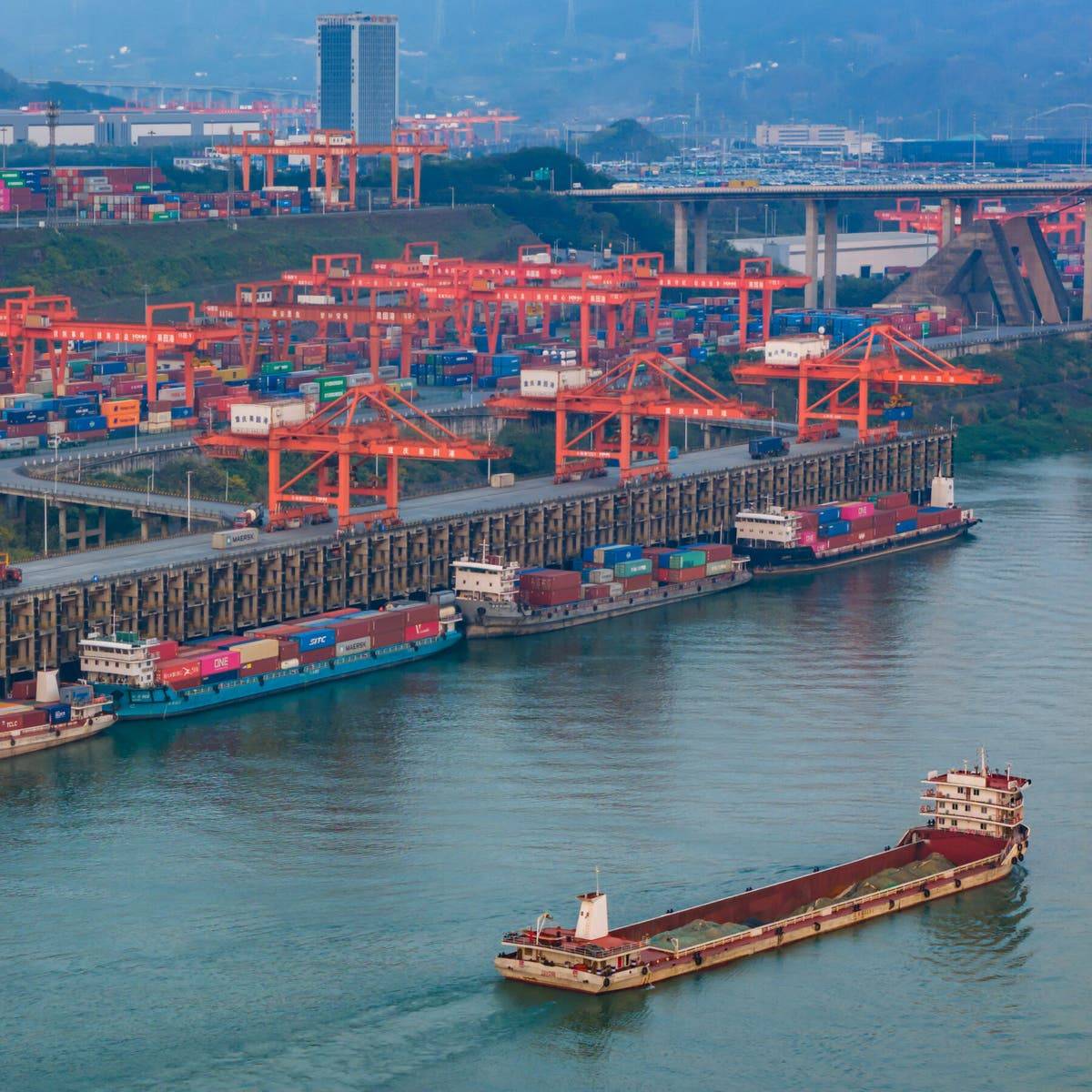US-China Trade Tensions: Trump's Tariffs Put China in a Precarious Position
The ongoing trade tensions between the United States and China have taken a dramatic turn, with President Trump's tariffs putting China in a difficult spot. The tariffs, which Trump has touted as a means to level the playing field and protect American industries, have sparked concerns among economists and trade experts ¹.
China's economy, already facing headwinds from a battered housing market and sluggish consumer demand, is likely to be severely impacted by the tariffs. The country's export-driven growth model, which has been the engine of its economic rise, is under threat. With the US market, one of China's largest export destinations, becoming increasingly hostile, China's exporters are facing an uncertain future ¹.
The tariffs have also sparked concerns about the potential for a trade war, which could have far-reaching consequences for the global economy. The US has already imposed tariffs on billions of dollars' worth of Chinese goods, and China has retaliated with its own tariffs on US products. The escalating trade tensions have sparked fears of a global trade war, which could lead to higher prices, reduced economic growth, and even job losses ².
Despite the challenges, China is not without options. The country has been actively pursuing trade agreements with other nations, including the European Union and Japan, in an effort to diversify its export markets. China has also been investing heavily in its Belt and Road Initiative, a massive infrastructure development project aimed at connecting Asia with Africa and Europe ¹.
However, the tariffs have also raised concerns about the potential for China to retaliate against US businesses operating in China. The country has a history of using regulatory measures to target foreign companies, and there are fears that US businesses could be next. This could lead to a further escalation of trade tensions, making it even more difficult for China to navigate the complex trade landscape ².
In conclusion, Trump's tariffs have put China in a difficult spot, with the country facing significant challenges in its efforts to maintain its export-driven growth model. While China is not without options, the tariffs have raised concerns about the potential for a trade war and the impact on the global economy. As the trade tensions continue to escalate, it remains to be seen how China will respond and what the ultimate outcome will be.
The tariffs have also raised concerns about the potential impact on the US economy. While Trump has touted the tariffs as a means to protect American industries, many economists believe that they will ultimately lead to higher prices and reduced economic growth.
A study by the Tax Foundation found that the tariffs could lead to a reduction in economic growth of up to 1.3% over the next decade. The study also found that the tariffs could lead to the loss of up to 1.4 million jobs ².
Another study by the Peterson Institute for International Economics found that the tariffs could lead to a reduction in economic growth of up to 2.5% over the next decade. The study also found that the tariffs could lead to the loss of up to 2.1 million jobs ².
In addition to the economic costs, the tariffs have also raised concerns about the potential impact on US consumers. Many economists believe that the tariffs will ultimately lead to higher prices for US consumers, as businesses pass on the costs of the tariffs to consumers.
A study by the National Retail Federation found that the tariffs could lead to higher prices for US consumers of up to $6,000 per year. The study also found that the tariffs could lead to a reduction in consumer spending of up to $1.3 trillion over the next decade ².
In conclusion, the tariffs have raised concerns about the potential impact on the US economy, including higher prices, reduced economic growth, and job losses. While Trump has touted the tariffs as a means to protect American industries, many economists believe that they will ultimately lead to negative consequences for the US economy.
The trade tensions between the US and China have also raised concerns about the potential impact on the global economy. Many economists believe that the tariffs will ultimately lead to a reduction in global trade and economic growth.
A study by the International Monetary Fund found that the tariffs could lead to a reduction in global trade of up to 2.5% over the next decade. The study also found that the tariffs could lead to a reduction in global economic growth of up to 1.5% over the next decade ².
Another study by the World Bank found that the tariffs could lead to a reduction in global trade of up to 3.5% over the next decade. The study also found that the tariffs could lead to a reduction in global economic growth of up to 2.5% over the next decade ².
In addition to the economic costs, the trade tensions have also raised concerns about the potential impact on global stability. Many economists believe that the tariffs will ultimately lead to increased tensions between nations and a reduction in global cooperation.




No comments yet
Be the first to share your thoughts!